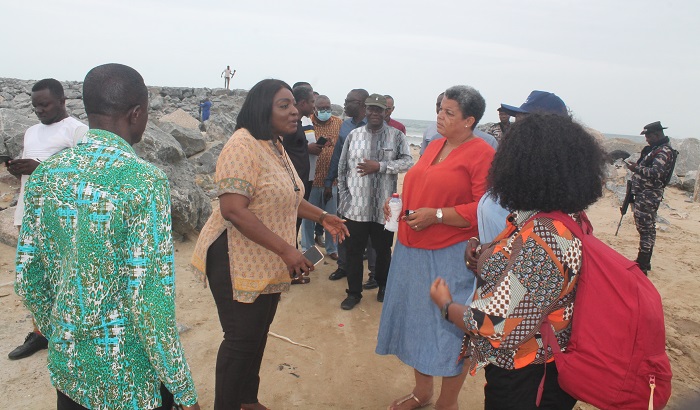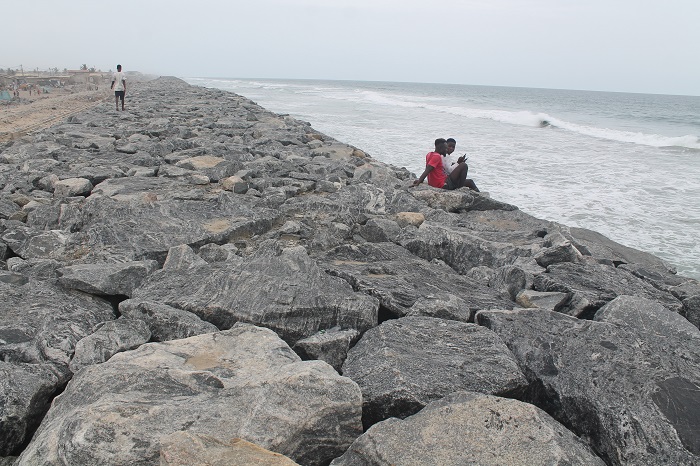
Work on the five kilometre Ningo-Prampram Coastal Protection project is almost 50 per cent complete.
According to Osei Sarpong, Project Manager, 24 groynes out of the planned 48 had been constructed so far to reduce, and divert tidal currents which hitherto were destroying property along the coastline.
A groyne is a rigid hydraulic structure built perpendicularly from an ocean shore or a river bank, interrupting water flow and limiting the movement of sediment.
He was speaking at Prampram in the Greater Accra Region yesterday when the Parliamentary Committee on Works and Housing inspected the project.
The committee further inspected work on the Dansoman sea defence wall which was 95 per cent complete.
The remaining 24, if approval was given for work to commence in the coming weeks, Mr Sarpong said, would be completed by October next year.
“We are awaiting instruction to begin the next 50 per cent of the project. We need the instruction as quickly as possible because currently, we have idle equipment,” he stated.
He said groyne was the preferred design for the GH¢393 million project due to its positive environmental impact on the turtle inhabiting the coastline of the area.
Initially, Mr Sarpong indicated that 50 groynes spaced 100 metres apart were designed for construction but was reduced to 48 to be spaced into 200 metres after review by the consultant.
He was, however, concerned about the continuous sand winning along the Prampram coastline by the indigenes saying that “the practice threatens the sustainability of the project.”
Additionally, the Project Manager said cash flow from the government and the use of the coastline for open defecation by the residents was the main challenge facing the contractors.
Despite the current challenges, he noted that apart from protecting the shoreline and the livelihood of the people, the project had employed 30 of the locals mainly as equipment operators.
Mr Vincent Oppong Asamoah, Ranking Member of the Committee, appealed to government to expedite payment to contractors.
He explained that delays in payment to the contractors were likely to result in cost overrun of the project.
He bemoaned the use of sole sourcing procurement method for the award of project contracts saying that “it is vital government focused on competitive bidding to ensure the project is executed by highly qualified and deserving contractors for an assured quality of work.”
Mr Asamoah explained that such a move would also ensure value for money in the development of projects
Dr Patrick Boakye-Yiadom, a member of the committee and Member of Parliament of Obuasi East Constituency tasked the contractors to take up the recommendations made and work to deliver quality project.
FROM CLAUDE NYARKO ADAMS, PRAMPRAM




